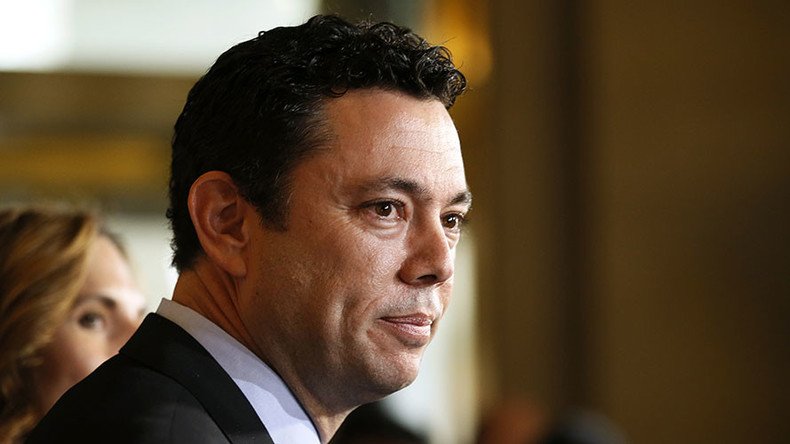Republicans fast to object to NSA spying when it involves Israel

A recent report has revealed that the National Security Agency intercepted communications involving Israeli officials and members of Congress. Republicans are now requesting that the NSA provide them with the details.
Republicans on the House Oversight and Government Reform Committee have demanded that the NSA provide them with all guidance given to the agency’s employees concerning intercepted private conversations involving Israeli Prime Minister Benjamin Netanyahu, his aides, members of Congress, and American Jewish groups. This comes two years after President Obama promised to stop eavesdropping on friendly heads of state.
Committee chairman Jason Chaffetz (R-Utah) and three other members of the panel – Representatives Ron DeSantis (R-Florida), Cynthia Lummis (R-Wyoming) and Mark Meadows (R-North Carolina) – sent a letter to NSA Director Michael Rogers on Wednesday requesting information on how the agency handles communications involving lawmakers.
The revelation has led Republicans who are usually at odds with one another – national security hawks and civil liberties advocates – to join in common cause.
“I’m appalled by it,” presidential hopeful Senator Rand Paul (R-Kentucky) told Fox News on Wednesday. “You could see how it would stifle speech if you’re going to eavesdrop on congressmen, and that it might stifle what they say or who they communicate with.”
This fear of self-censorship induced by surveillance is not unfounded. Rep. Eliot Engel (D-New York), the top Democratic member of the House Foreign Affairs Committee, told The Hill that he wasn't surprised by the report, admitting that he secretly talked with Israeli Ambassador Ron Dermer on two occasions in the lead up to a vote regarding the Iran deal.
“I assume that everything I say — someone is listening. I am careful that what I say in public is what I say in private,” Engel said. “I don’t know what this really tells us.”
Senator Marco Rubio (R-Florida), a noted hawk who has praised NSA spying in his presidential campaign, said that the US’s surveillance of its allies might be worse than previously thought.
“I actually think it might be worse than what some people might think, but this is an issue that we’ll keep a close eye on," Rubio, who sits on the Senate Intelligence Committee, said on Fox & Friends on Wednesday.
“They have a right to be concerned about the fact that while some leaders around the world are no longer being targeted, one of our strongest allies in the Middle East, Israel, is,” he added.
READ MORE: Dems scoff as House GOP looks into NSA spying on Israel and Congress
A third Republican presidential contender, Dr. Ben Carson, made a statement condemning the spying on Netanyahu.
“Instead of focusing on deterring the Iran nuclear threat and fighting against the Mullahs who chant ‘Death to America,’ President Obama has treated Israel, our staunch, democratic ally in the Middle East, as his real enemy,” Carson said.
It is truly disgraceful that the Obama administration has spied on Prime Minister Netanyahu. Read my full statement: https://t.co/jZ8HWwQR2t
— Dr. Ben Carson (@RealBenCarson) December 30, 2015But Twitter users quickly pointed out that Israel is notorious for spying on the United States.
.@RealBenCarson LOL get a grip Ben. Israel spies on us literally all the time.
— HanDiesHat (@TrumpHat) December 30, 2015America: where politicians are outraged when the US spies on Israel but now when Israel spies on the US https://t.co/VDQcZJmlX1
— CJ Werleman (@cjwerleman) December 31, 2015The reaction of Republican lawmakers was markedly different when it was revealed by that the NSA was spying on certain allied heads of state, including German Chancellor Angela Merkel and Brazilian President Dilma Rousseff. Their ire was largely focused on Edward Snowden, the whistleblower that leaked the information.
Barack Obama subsequently put the communications of heads of state, such as Merkel and French President Francois Hollande, on a protected list. However, as a workaround, he allowed the communications of their top aides to be monitored.













